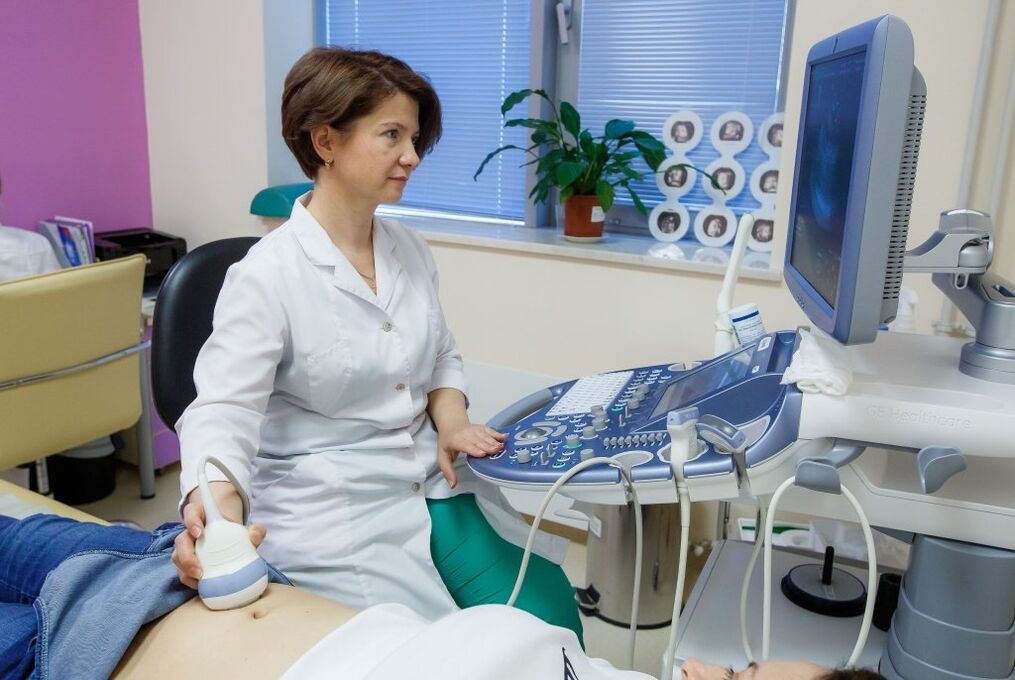Prostatitis in women is not a joke, but a common name for inflammation of the atria. These glands are also called Skene glands, and their inflammation - dermatitis - has the same symptoms as prostatitis in men. What are the characteristics and dangers of this disease?
Does prostatitis occur in women?

The insidiousness of the pathology is that it is poorly perceived by doctors and is rare.
Prostatitis occurs in women, but this disease is called dermatitis. The glands inflamed in this pathology are located slightly below the urethra and are made up of sensitive tissues.
Skene glands are thought to be a rudimentary prostate that forms in the embryo before the genitals appear. Simply put, the glands of the Skene are a type of empty prostate that develops into a full-fledged prostate gland in the male fetus and remains in infancy in the female fetus.
Interestingly, these glands are capable of producing specific secretions that are similar in composition to the secretion of the prostate gland in men. In addition, the PSA antigen, the most important tumor marker, is found in this fluid.
Interesting!The jet orgasm that occurs in some women is the result of the functioning of the Skene glands.
Dermatitis is rare. The problem is that inflammation of the prostate in women is difficult to diagnose, often misdiagnosed, so there are no accurate statistics on the incidence of this disease.
Causes of skinite
Most women do not even know that these glands are located near the urethra, but when they become inflamed, they develop acute symptoms that are reminiscent of signs of prostatitis in men.
Inflammation of the skin is most often caused by an infection of the glands. The main causes of the disease are:
- damage to the urethra;
- lack of hygiene;
- infection of the glands due to the spread of the infection in other diseases of the genitals.
Dermatitis is most commonly caused by opportunistic microorganisms in the female body. They can enter the glands through the urine or from the vagina. Under normal circumstances, such microorganisms do not cause an inflammatory process, however, in case of damage to the Skene glands or urethra, female prostatitis occurs. This is due to a decrease in local immunity.
Dermatitis can be allergic in nature. The use of inappropriate intimate hygiene products can cause an allergic reaction and a decrease in local immunity, which increases the risk of infection of the glands.
Another cause of dermatitis in women is damage to the urethra due to surgery or rough intercourse. The urethral opening can also be damaged due to urolithiasis as the sand passes through the urethra.
Women 's "prostatitis" is linked to an irregular sex life. Frequent exchange of sexual partners and neglect of contraception increase the risk of developing urogenital infections.
A general increase in immunity is a factor that increases the risk of developing the disease. Dermatitis may be associated with recent severe infectious diseases, hypothermia, exacerbation of chronic diseases.
Symptoms of the disease

With pathology, permanent weakness and "weakness" can be felt throughout the body.
Once you realize that a woman has prostatitis, you need to know how the skin inflammation manifests itself. The disease is called "female prostatitis, " largely due to symptoms similar to prostatitis in men. Symptoms of discarding include:
- frequent urination;
- urination in small doses;
- pain and pain in the urethra when using the toilet;
- pain during intercourse;
- increased body temperature;
- cramps in the bladder area;
- general malaise, loss of strength.
Dermatitis is similar to cystitis in women in many ways. The urge to urinate is constantly felt in this disease, but this need cannot be fully met. Urine is excreted in small portions, which causes severe discomfort. The feeling of a full bladder is maintained even when using the bathroom.
Dermatitis can be distinguished from other diseases of the urogenital system with similar symptoms due to pain during intercourse.
Skinit does not have intense heat, but body temperature can rise to 37, 5-38 degrees.
Why is prostatitis dangerous in women?
Once they understand the specifics of this disease, patients ask whether such prostatitis is dangerous for women. This disease can lead to dangerous complications and therefore requires timely diagnosis and treatment.
Possible complications of dermatitis include:
- abscess of the gland;
- cystic neoplasms;
- secondary infertility;
- adhesions in the pelvis;
- deformation of the area where the inflamed glands are located;
- the spread of the infection to other organs in the small pelvis.
The disease is contagious and can be caused by piogenic bacteria. In severe cases, the inflammation can develop into a glandular abscess that has severe symptoms and requires surgical treatment. Self-rupture of the abscess is potentially dangerous with the development of sepsis (sepsis).
The infection can spread to all organs in the pelvis through the bloodstream. There is also a risk that the agents causing the disease will spread upwards with subsequent kidney infection. In addition, in the case of an extensive infection, a woman can infect her partner through unprotected intercourse. In men, bacterial urethritis can develop into inflammation of the prostate.
Diagnostics

Ultrasound diagnostics are performed to make sure there are no other diseases.
Once we have found out if there is prostatitis in women and what signs and symptoms it is possible to suspect dermatitis, it is not recommended to self-medicate, but to see a doctor immediately.
The main problem with dermatitis is complex diagnostics. Due to the location of the glands, their inflammation is accompanied by inflammatory symptoms of the mucous membranes of the bladder or urethra, so they are often misdiagnosed and prescribed poorly.
Skene’s glands are hard to reach, so they can’t be fully examined. In this respect, the diagnosis is made to the exclusion of other diseases with similar symptoms. Mandatory tests:
- Bladder ultrasound to rule out cystitis;
- Ultrasound of the uterus and appendages to rule out inflammation;
- smear from the cervical canal;
- bacterial culture from the cervix;
- general and biochemical urine analysis;
- smear from the urethra.
After the exclusion of other diseases, the treatment of dermatitis is prescribed. Often the most informative diagnostic method is a urine test that detects pathogenic microorganisms.
Characteristics of treatment
Conservative treatment with peeling is used. Therapy includes taking the following groups of medicines:
- antibiotics to eliminate the infection;
- anti-inflammatory drugs used in urology;
- antispasmodics to reduce pain;
- immunomodulators.
Generally, broad-spectrum antibiotics or antibacterial drugs used to treat cystitis are prescribed. Because it is often impossible to pinpoint the pathogen of a disease, a doctor may prescribe multiple medications from this group at once. Third-generation cephalosporins have proven successful.
Acute symptoms resolve one day after starting antibiotic treatment. However, it is important that the medication is taken as a cure, the duration of which is determined individually by the doctor.
Anticonvulsants are recommended to relieve pain. Simple painkillers are ineffective because the pain is accompanied by cramps in the urethra and bladder.
In addition, herbal anti-inflammatory drugs are prescribed to treat cystitis and kidney disease. These drugs reduce the inflammatory process, normalize the urinary process and promote general well-being in various diseases of the urinary tract.
Immunomodulators are required. Both drugs for the prevention of diseases of the urogenital system and strengthening agents such as echinacea purpurea extract are used.
Preventive measures
Once you have figured out how to cure dermatitis, you need to pay attention to important preventative measures. This disease is similar to cystitis - once you get it, the chances of relapse last for many years. To prevent this, you need to do the following:
- observe personal hygiene;
- use barrier-free methods of contraception;
- has a permanent sexual partner;
- strengthens immunity.
A gynecologist and urologist should be consulted immediately when the first warning symptoms appear. Self-healing of dermatitis is dangerous in chronic inflammation.
























